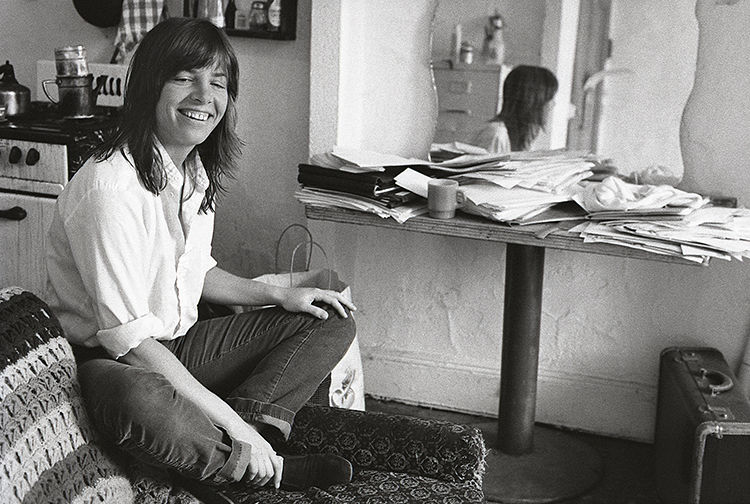The Creative Independent has a conversation with the inimitable Eileen Myles, who discusses her unusual writing process, her winding path to literary recognition, and and her new book, Afterglow: a dog memoir. The interview was conducted by Amy Rose Spiegel. Here’s an excerpt:
I wanted to ask you about persona and voice, and about choosing, in your “dog memoir,” Afterglow, to write as Rosie, your dog, or as Bo Jean Harmonica, an alter ego. How do those personas come to be? When do you decide on a certain voice for a certain kind of writing or thinking?
The voice comes first. I’m going along, and suddenly it feels like something or somebody else is occupying this writing. And it’s not like I haven’t had the feeling before; I just really didn’t know who the character was.
What’s weird about writing is that, in some ways, you’ve been sowing what you reap—you just don’t know exactly when and how you sowed it. At various points in the ’70s or ’80s when I would try and go off drugs, I would read books of theosophy. There was a theosophical occult bookstore called Weiser’s on Broadway, and my girlfriend worked there. They had these very special dark-blue books with very plain white font—this whole series on strange discipleship, like post-Madame Blavatsky, early 20th-century Yates, and Krishnamurti, but weirder. It was all those people, from all these different strains of thinking, walking on the beach together and having notions of spirituality. When I would try and not be messed up, I read. I would smoke pot, drink tea, read, and go into these other spaces.
All that knowledge just parked someplace in my brain. I’ve never been interested in characters, but I started to get a little loose about who else Rosie could be, or what other domains might she be traveling in without her body through space. All the [theosophy] stuff started to come up in the text, and at a certain point, I thought, Is this me writing, or is this another character? I slowly started to imagine her as being one of these early 19th century women, and that maybe she would give herself a strange name. It was like, If I was such a nut, what would I call myself? Bo Jean Harmonica seemed androgynous, and I love harmonicas.
Image: Eileen Myles in her apartment on East Third St., New York, 1980. Via Paris Review.
